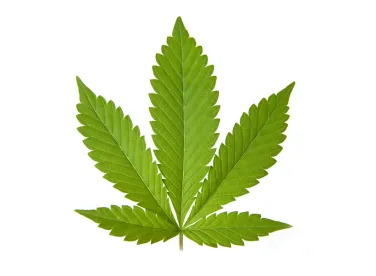Just before the midterms last year, President Biden made two historic announcements that he described as steps to “end” the federal government’s “failed approach” to marijuana. First, he issued mass pardons for federal convictions of simple marijuana possession and has encouraged governors to do the same for state-level marijuana offenses. Second, President Biden ordered Secretary of Health and Human Services Xavier Becerra “to initiate the administrative process to review expeditiously how marijuana is scheduled under federal law.”
At the time, we described the announcement as a largely political announcement, rather than a fundamental change in policy from an administration that has never truly championed marijuana reform (something we also predicted before the 2020 presidential election). And, as much as we hate to say “we told you so,” to date there have been no public moves towards de-scheduling or re-scheduling marijuana, which remains a Schedule I substance under the Controlled Substances Act. That means that the federal government apparently still believes that there are no medicinal benefits to marijuana (despite FDA’s approval of Epodiolex) and that it has a high potential for abuse.
The Legal Distinction Between De-Scheduling and Re-Scheduling
The consequences between de-scheduling marijuana and re-scheduling are enormous. If marijuana is de-scheduled, then it will no longer be a controlled substance under the Controlled Substances Act. As a practical matter, it likely would be treated like alcohol as states would have their own marijuana laws with the potential for some federal oversight and regulation.
If, on the other hand, marijuana is re-scheduled, that would mean marijuana would remain a controlled substances under the Controlled Substances Act but would be attainable by consumers who meet certain requirements. Most controlled substances are available by prescription from a licensed physician.
The Practical Distinction Between De-Scheduling and Re-Scheduling
This is significant. Most current marijuana operators would strongly prefer that marijuana be de-scheduled as opposed to re-scheduled. If marijuana was de-scheduled, those operators likely would be allowed to operate largely as they currently operate and, again, in a scheme resembling that of alcohol regulation. The rules would be primarily a function of existing state laws and presumably interstate commerce in marijuana would be legal for the first time in half a century. Also, the little bit of federal oversight that would likely exist in a new de-scheduled cannabis industry could bring a welcomed dose of uniformity and certainty across the country for things like advertising limits, labeling, testing requirements, and how food-related products are regulated.
If marijuana is re-scheduled such that it remains a controlled substance, marijuana companies may have to comply with much more stringent FDA rules, and physicians may still face the question of whether they are permitted to prescribe marijuana. Given the cost of FDA compliance and the attendant costs for research, development, and testing, existing marijuana operators may find themselves priced out of the market. If marijuana was listed as, for example, a Schedule II or III substance, it may be that marijuana will be brought to consumers courtesy of Big Pharma. Just imagine Kush Kontrol, brought to you by your friends at AstraZeneca!
Big Pharma control over the marijuana industry, depending on who you ask, would have its pros and cons. On the upside, large pharmaceutical companies have the resources to conduct sophisticated clinical trials and develop products that are required to be safe and effective for consumers. On the other hand – and this is the bad news for existing marijuana operators – placing the marijuana industry in the hands of pharmaceutical companies runs counter to how the industry developed and would pose a serious threat to the survival of many existing marijuana operators.
Big Pharma won’t be the only major player in a de-scheduled or re-scheduled cannabis industry. Just last week, the Wine & Spirits Wholesalers of America (WSWA) released a public statement proclaiming that “the time has come for Congress to comprehensively legalize and regulate adult-use cannabis at the federal level.” In its memo, the WSWA makes the case for federal legalization and regulation by discussing what it dubs as the “Four Principles of Safe and Responsible Adult-use Cannabis Regulation.” Those four principles are:
-
The permitting of cannabis producers, importers, testing facilities, and distributors;
-
The approval and regulation of cannabis products;
-
The efficient and effective collection of federal excise tax; and
-
Effective measures to ensure public safety.
While the WSWA’s paper references a “shared state-federal regulatory structure,” its proposed model places much more of the regulatory oversight of a federally legal cannabis industry in the hands of the federal government over individual states.
* * *
At the end of the day, I continue to believe this may be an academic exercise in the short term. There does not appear to be an appetite in Congress or in the White House to change the legal status of marijuana. If I’m wrong, though, the consequences of any change will be hugely consequential.




 />i
/>i

